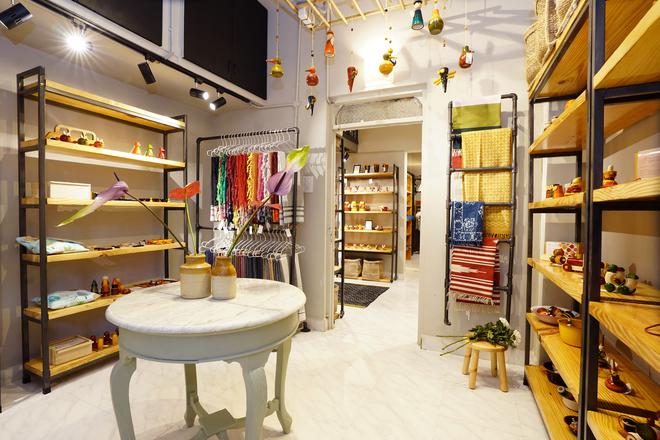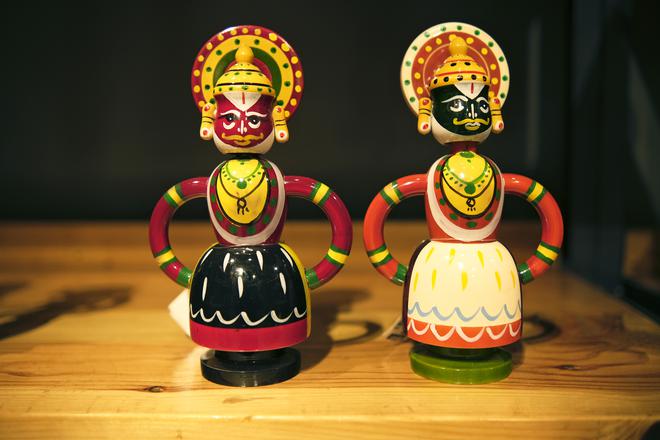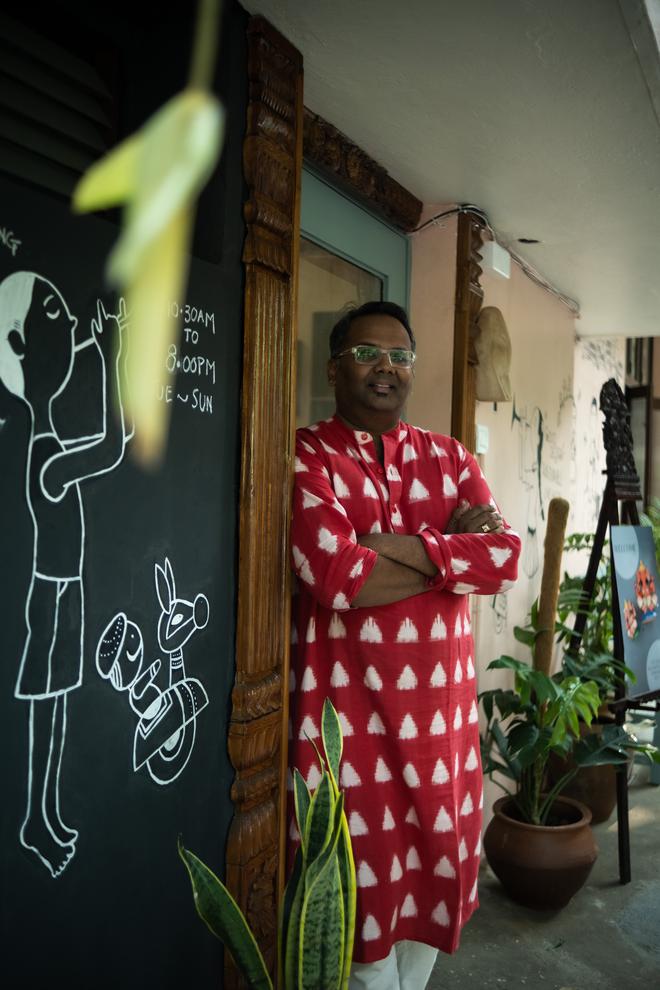“If you have one day to shop in a new city, for something handcrafted and unique, where would you go,” asks Karthik Vaidyanathan, for whom it has been a whirlwind two weeks as his team sets up the Varnam Craft Collective store on Wheatcrofts Road in Nungambakkam. “I want Varnam to be that go-to store for you,” he adds. From picking the right shade of paint, to crowdsourcing a bathtub for the garden to match his Bengaluru design, the entrepreneur harnessed all the love for his brand on social media.
The store, opened on September 3, is a riot of colour and texture from its myriad product lines coaxed out of the 200-year-old Channapatna tradition.

Having worked for over a decade with artisans in Channapatna (Gombegala Ooru, toy town in Kannada) in the Ramanagara district of Karnataka, Karthik gets sentimental about what this store means to him. “For me, Chennai has always been a welcoming place whenever I’ve visited with exhibitions, and there is an appreciation of the work we do at Varnam.” While the lockdowns in 2020 forced the closure of two of his stores, one in Bengaluru and the other in Mumbai, this move to Chennai was a blessing in disguise. “Most individual boutique stores closed in Bengaluru, and I had to move quick to make the decision as the scale of work and the number of artisans reduced, but this way I could still pay salaries,” says Karthik, adding, “A hybrid model is probably necessary, but honestly, the touch and feel of a physical space is very important.”
You can see why. Traditional pieces share space with Varnam originals, designed by the founder and nurtured with a group of artisans since 2011. It was in that year that Karthik had been convinced of a design intervention, on a chance trip to Channapatna enroute to Mysuru. “The attempt has been to reorient this craft to the modern context by ensuring that each design has a utilitarian value and an aesthetic that is current,” he says.
From dining and home decor to board games and toys, and even lighting, Varnam has a vast repertoire of fun and functional pieces. With whimsical names like Gyaani Goobey (wise owl), the award-winning Oinkston series of serveware and toys, the Bekku (cat) Bharanis, and the Bumbledore toys and storage solutions, Varnam has taken its penchant for form and function and helped artisans hone their skills to cater to a new market.

While Varnam Craft Collective relies strongly on its design, its founder, an engineer with a Management degree to boot, came to design serendipitously. Karthik has previously worked with Sony Music in Mumbai, producing classical and spiritual music. It was at the company that Karthik met his design mentor. “My attitude towards design was shaped by Manjiri Rajopadhya, an NID alumnus who used to head design at Sony Music. Her eye for detail and always keeping in mind that design has to deliver against deadlines are principles that I always follow. Manjiri lost her battle with cancer a few years ago. The Varnam store is dedicated to her,” Karthik says. Before his work with the Channapatna art form, Karthik worked with the brand team of Tanishq in Bengaluru, a detour to helm operations at Radio City 91FM, before setting up and running several radio stations for Worldspace satellite radio.
He currently heads internal communication design for ACT Fibernet, while leading design and operations at Varnam. Karthik is meticulous with his metier, “The local artisans do their usual designs and simpler work but I found there were few checks on quality control in terms of proportions and finish. The artisan clusters who have worked with us over a decade now understand the value of these elements and take pride in working with Varnam.”

For an artform dominated by men, Varnam has chosen to work with a women-centric group. “Especially after the pandemic when so many artisans chose other work over this, the women came back to us because they realised they needed to have two incomes to run a household. We give new artists a ₹5,000 stipend to learn the craft. I have become emotionally invested in their lives and have helped with medical expenses and loan repayments etc. We even asked for donations of gently used clothes for the women and their children, and were heartened by the response on social media,” says Karthik
Varnam does not mass produce items, hence the pricing is fixed by both the artist and the founder, based on the time, raw material and expertise needed per product. With the success and accolades that have come Varnam’s way, Karthik is looking to slowly bring his design to other craft forms. “We have the popular handmade dolls from Shivanjali, an NGO that empowers women and provides them with a sustainable livelihood in Coimbatore, and a range of block print apparel from Rajasthan as well, where the blocks are inspired by Channapatna designs. Chettinad and Patteda Anchu sarees revive the textile tradition of Karnataka and Tamil Nadu, while we have collaborated with Bidri artists as well for our jewellery,” says Karthik by way of example.
His design vision does not stop here; Varnam plans to bring focus onto other craft forms as well. Says Karthik, “I am really looking for young designers to work with artisan clusters in Karnataka, Kerala, Telangana and Tamil Nadu. There is so much promise with the Pattamadai ( Pattamadai mats or pattu pai are handwoven using fine cotton threads in the warp and intricately split reeds of korai grass in the weft), and Jamakkalam artists (Bhavani Jamakkalam refers to the GI-tagged blankets and carpets manufactured in Bhavani in Erode district, Tamil Nadu.) to revive and contemporise those traditional textiles as well.”







